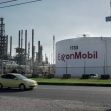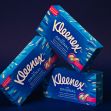New York State is tackling its plastic litter problem by filing a lawsuit against soda and snack giant PepsiCo.
The lawsuit was filed in Erie County Supreme Court by Attorney General Letitia James and accuses PepsiCo and its subsidiary, Frito-Lay, of being a public nuisance due to the amount of plastic litter their products create. The complaint details that the plastic litter interferes with the use of a public space and that the health, safety, and comfort of New Yorkers is endangered.
The lawsuit asserts that because the company produces so much plastic, which ultimately ends up contaminating the environment via the Buffalo River, the company should be held liable. The state notes that an overwhelming amount of plastic including snack wrappers and plastic soda bottles ends up in the Buffalo River, which ultimately ends up hurting the surrounding wildlife, the overall environment, and New Yorkers’ access to clean water.
The complaint also accuses PepsiCo of violating New York General Business Law Section 349 which prohibits deceptive acts or practices in the conduct of any business. James also asserts PepsiCo violates Section 63(12) of the New York Executive Law. Under this law, PepsiCo is accused of repeated or persistent illegality in the manner in which they conduct business. Additionally, the lawsuit brings a claim of strict product liability in which PepsiCo failed to warn customers of the environmental impact their plastic packaging caused the environment.
In her statement announcing the lawsuit, James explains, “No company is too big to ensure that their products do not damage our environment and public health. All New Yorkers have a basic right to clean water, yet PepsiCo’s irresponsible packaging and marketing endanger Buffalo’s water supply, environment, and public health.”
PepsiCo is headquartered in New York and creates at least 85 different types of beverage brands and at least 25 different snack food brands, a majority of which are distributed in single-use plastic packaging that is thrown away or recycled after use.
Over the years, the company has expressed its commitment to minimizing plastic use; however, that promise is yet to be realized. In a statement released after the lawsuit was filed, PepsiCo shared that it was committed to “plastic reduction and effective recycling,” but has not specifically responded to the allegations that it is liable for the state's plastic litter problem.
The lawsuit highlights a 2022 survey that looked at the type of waste that was discarded and eventually ended up in the Buffalo River. The study shows, with images, that a majority of the waste found was plastic waste. Of the 1,916 pieces of plastic waste that were collected with an identifiable brand, PepsiCo products accounted for 17.1%. McDonald's products reportedly came in second.
The Buffalo River has been the center of environmental cleanup efforts since 1989 when a restoration project began to clean up the river and restore its ecosystem. When that project launched, the Buffalo River was considered to be one of the most polluted rivers. Concerns were especially magnified because the Buffalo River feeds into the much larger Lake Erie.
Environmentalists highlight the dangers that plastic waste poses to the environment, especially waterways. Plastics can take decades to biodegrade. A grocery store plastic bag, for example, can take anywhere from 10 to 20 years to biodegrade.
Other plastics, including those used by PepsiCo, will break down into smaller particles known as microplastics. These microplastics can be ingested by marine life including fish species, which not only harms the wildlife but can also hurt humans who eat impacted wildlife.
Jill Jedlicka, executive director of Buffalo Niagara Waterkeeper, shared in a statement, “Our Buffalo community fought for over 50 years to secure hundreds of millions of dollars to clean up toxic pollution, improve habitat, and restore communities around the Buffalo River.” She adds, “We will not sit idly by as our waterways become polluted again, this time from ever-growing single-use plastic pollution.”
The lawsuit wants to hold PepsiCo accountable by requiring them to warn customers about the environmental impact of PepsiCo's product packaging costs. Additionally, the lawsuit is seeking financial penalties and restitution.






